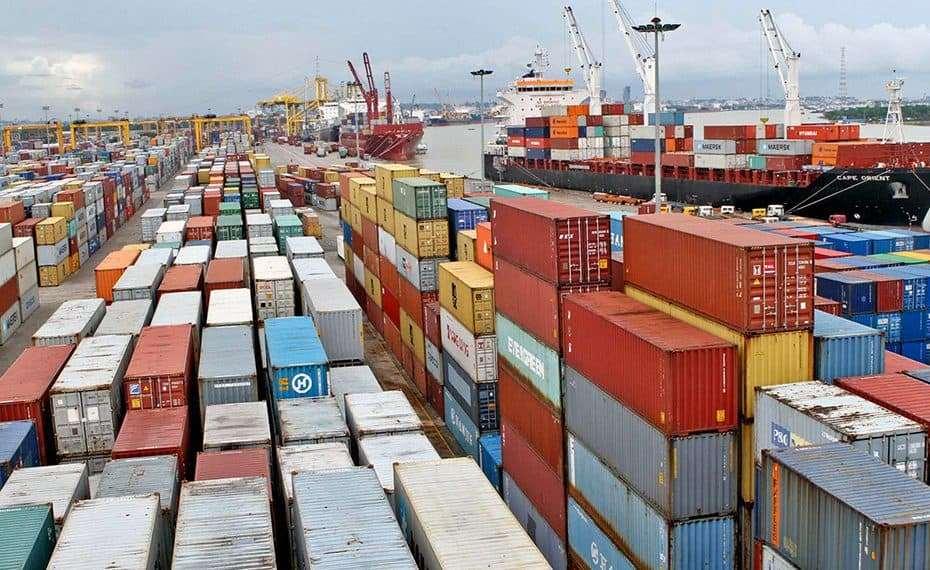By Ephraims Sheyin
Nigeria is believed to have the most robust port infrastructure in the sub-region, but port users have continued to struggle with huge economic costs due to inefficiencies arising from unfavourable export and import processes.
Over the years, the Nigerian Ports Authority (NPA), has made several interventions to resolve the incidence of heavy vehicular and human congestion around the country’s seaports and off-dock terminals, especially those within the Lagos axis where a large chunk of the nation’s external trade is processed.
After experimenting with a manual truck scheduling arrangement for over a year, the NPA came up with an electronic truck call-up system in February to tackle the perennial traffic gridlock responsible for the delay along the access roads leading to the country’s two busiest ports.
The truck call-up system, dubbed “Eto”, the Yoruba word for “to schedule”, is now the only authorised pathway for cargo trucks to access the port, including transfer of empty containers by shipping companies.
With the deployment of “Eto”, truck companies, terminal operators and freight agents are required to download the app, and then proceed to create an account to monitor the schedule and movement of their trucks in and out of the port.
According to the managers of the e-call up system, Messrs Trucks Transit Parks Ltd (TTP), benefits to subscribers of “Eto” include increased returns on logistics investment while maximising time per trip.
From available accounts, the roll-out of the electronic truck call-up platform proved to be a game-changer with its instant positive impact on the carriage cost of goods at the two Lagos ports.
The haulage fee imposed on fully laden containers from the Lagos Ports Complex, Apapa to a destination within the Lagos area fell substantially in the week the “Eto” app was formally launched.
Similarly, carriage cost from Tin-Can Island Port to warehouses within Lagos State dropped progressively by the second quarter of 2021, according to the records.
However, in spite of the firm directive by the NPA that non-compliance to the use of “Eto” and its guidelines would result in denial of access into the ports, impounding of trucks and withdrawal of registration or operating license, investigation has shown that some truck drivers and their collaborators appear bent on derailing the system.
While the responsible trucking companies continue to follow due process, the actions of some desperate truck drivers have become a big worry to the NPA.
Allegations of forgery of transit e-tickets and selling of tags to truck drivers by unscrupulous TTP employees were rife, while cries of extortion by security operatives assigned to monitor traffic along the port corridor became increasingly strident.
But TTP and the manager of the “Eto” platform say that the challenges are being addressed frontally.
Determined to restore port users’ confidence in the electronic truck call-up system as witnessed in the early days of its roll-out, Acting Managing Director of the NPA, Malam Mohammed Bello-Koko’s first public action when he assumed office in early May, was a visit to the Lilypond Terminal described as the theatre of operations for “Eto”.
He assured the operators of NPA’s commitment to speedily resolve all teething challenges against the smooth implementation of the call-up system.
“I have directed that action be taken immediately to improve the overall efficiency of the truck scheduling system for the benefit of its subscribers,” the NPA boss said.
The improvements he demanded from TTP included immediate deployment of physical infrastructure such as bollards, spikes and automated barriers and the installation of CCTVs at the port’s entry and exit points.
Bello-Koko also met with the Lagos State Governor, Mr Babajide Sanwo-Olu, to fine-tune strategies to curb indiscriminate parking and alleged extortion of truck drivers.
The NPA and Lagos State Government resolved to collaborate more on enforcement of traffic rules by rejigging the security architecture on the port access roads which had been fingered as a major contributor to the delays and alleged extortions along the corridors.
Bello-Koko also recently endorsed the implementation of additional measures designed to correct deficiencies so far identified.
According to the new measures, henceforth, a daily manifest will be generated by TTP for all trucks approved to access the port.
The manifest will be shared with all customers (subscribers), while truck owners will inform the drivers of trucks on the list/manifest to proceed to their various port destinations according to their allotted time as stated in the manifest.
The new measures also stipulated that all trucks must physically be situated in their respective truck park or pre-gates before being called out or pre-gated out, as applicable, with any truck or truck park found not complying blacklisted, or shut down.
Vehicles not verified from such truck parks but are on the manifest shall not be allowed into the port.
At the port end, TTP must ensure that only trucks on the manifest gained access into the port while NPA provides security.
To affirm seriousness, some truck parks were recently suspended for some infractions.
The new measures stipulated that after a ticket had been duly issued, it is the responsibility of the truck owner/driver to secure it as no other law enforcement agent is authorised to check driver’s call-up tickets.
Analysts have hailed the renewed zeal for the success of the “Eto” app, especially in view of the enormous impact of the Apapa traffic situation on socio-economic activities in Lagos.
They believe that the “Eto” initiative, if effectively deployed, will bring an end to the intractable vehicular gridlock on the access roads leading to the country’s two busiest seaports.
They, however, emphasised the buy-in of the port community, noting that such support was critical to success.
Mr Sesan Onileimo, Executive Director, Maritime Industry Advocacy Initiative, an NGO, put it more succinctly.
“The ‘Eto’ system must be supported to succeed to keep the Nigerian port economy on the path of efficiency and growth; it is an intervention too good to fail,” he said.
(NANFeatures). nannews.ng
Original post by https://dailytrust.com/lagos-ports-congestion-eto-call-up-system-as-best-solution

